site search
online catalog
PENNSYLVANIA MILITIA-INSPECTED, DERINGER MODEL 1817 RIFLE CONVERTED TO PERCUSSION

Hover to zoom

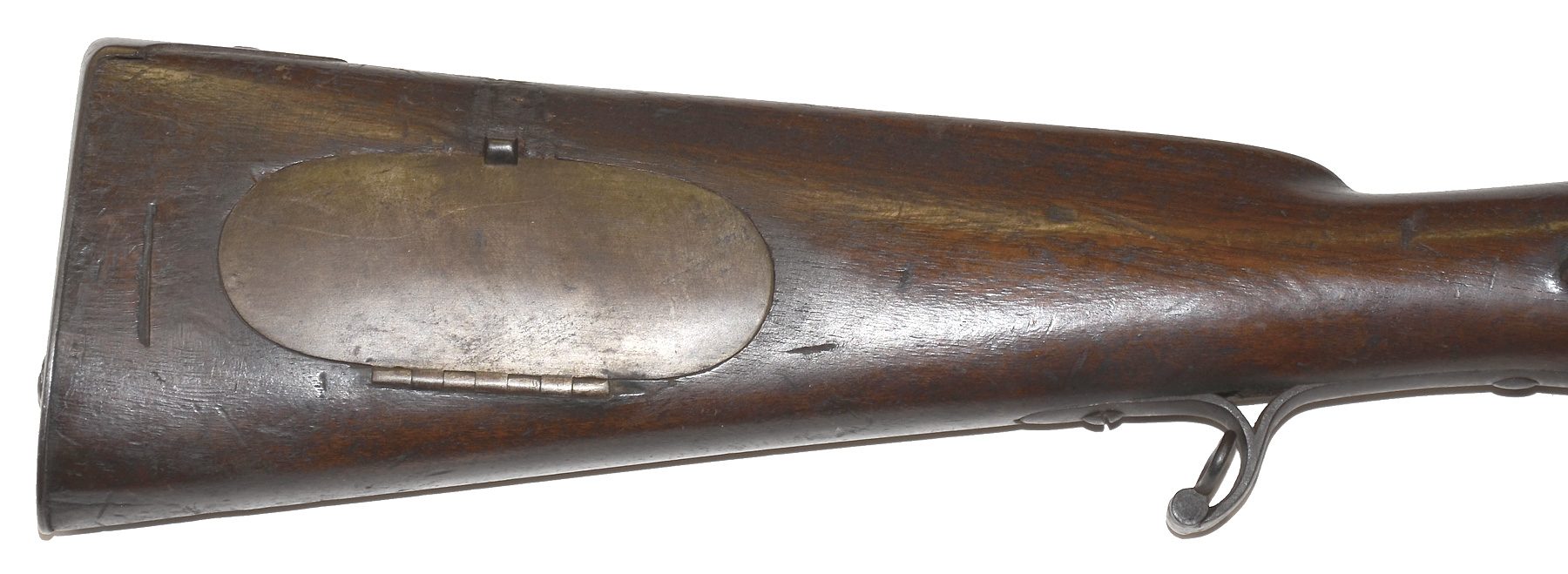


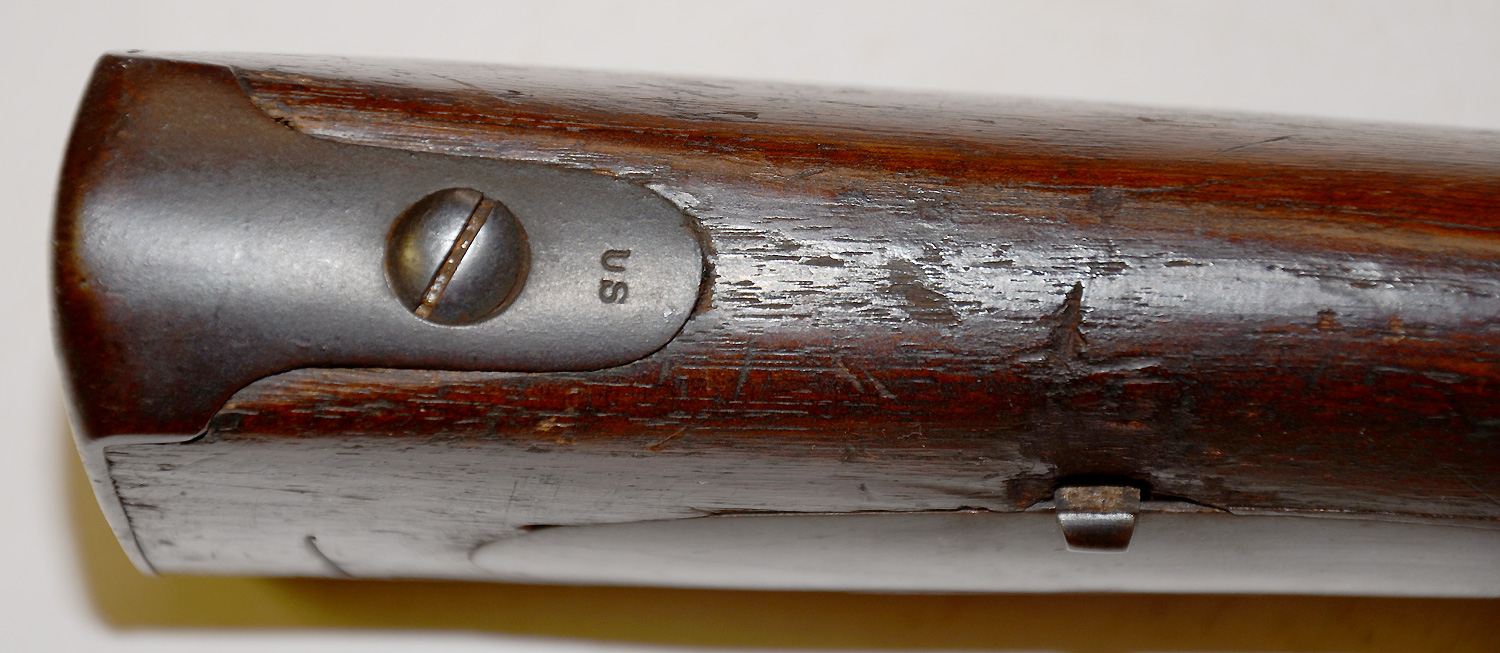
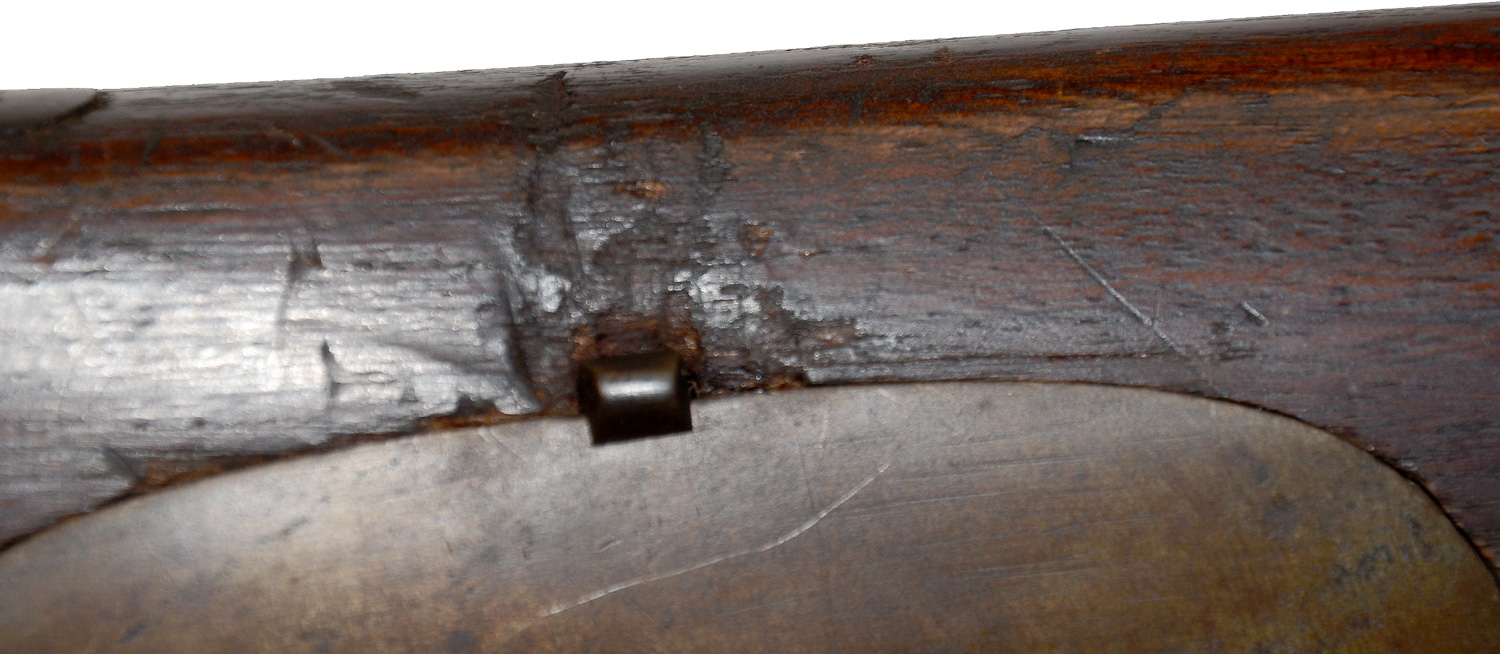
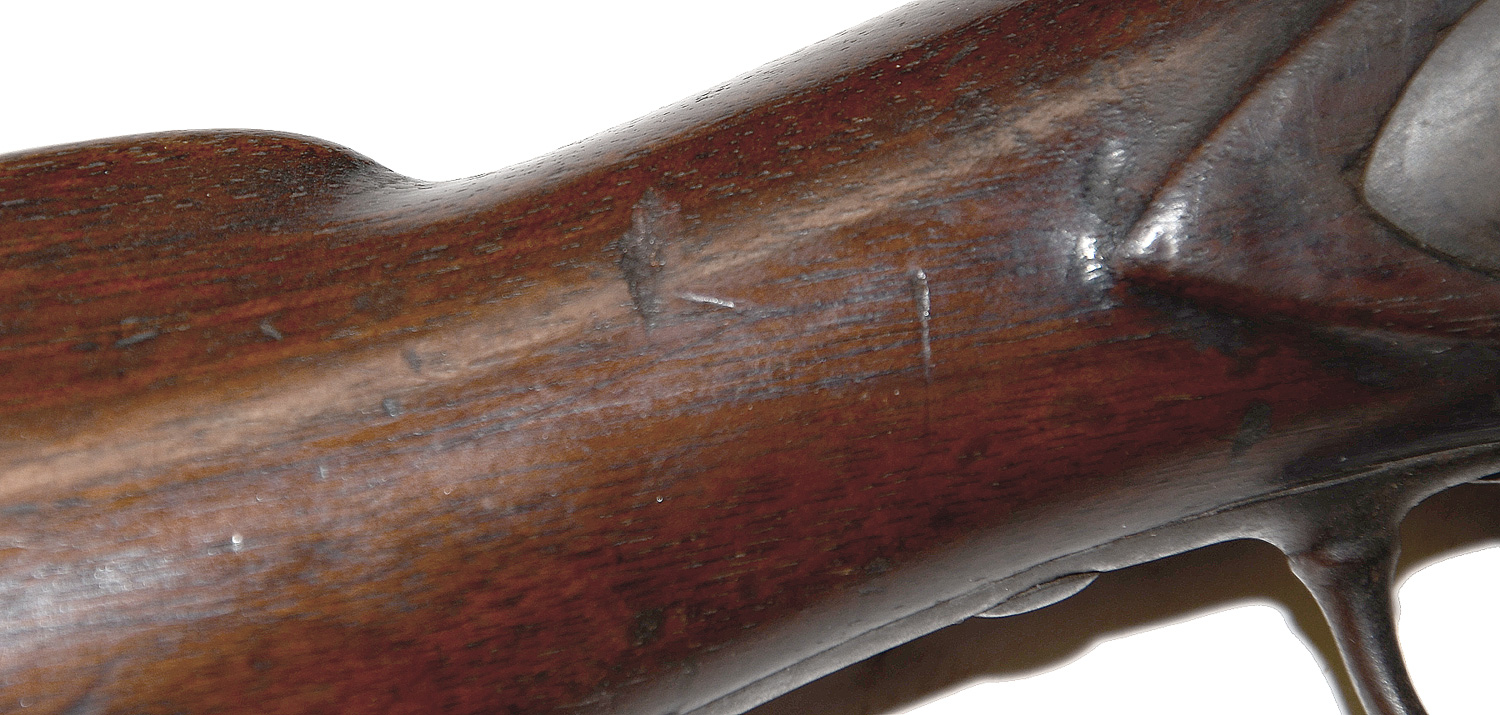
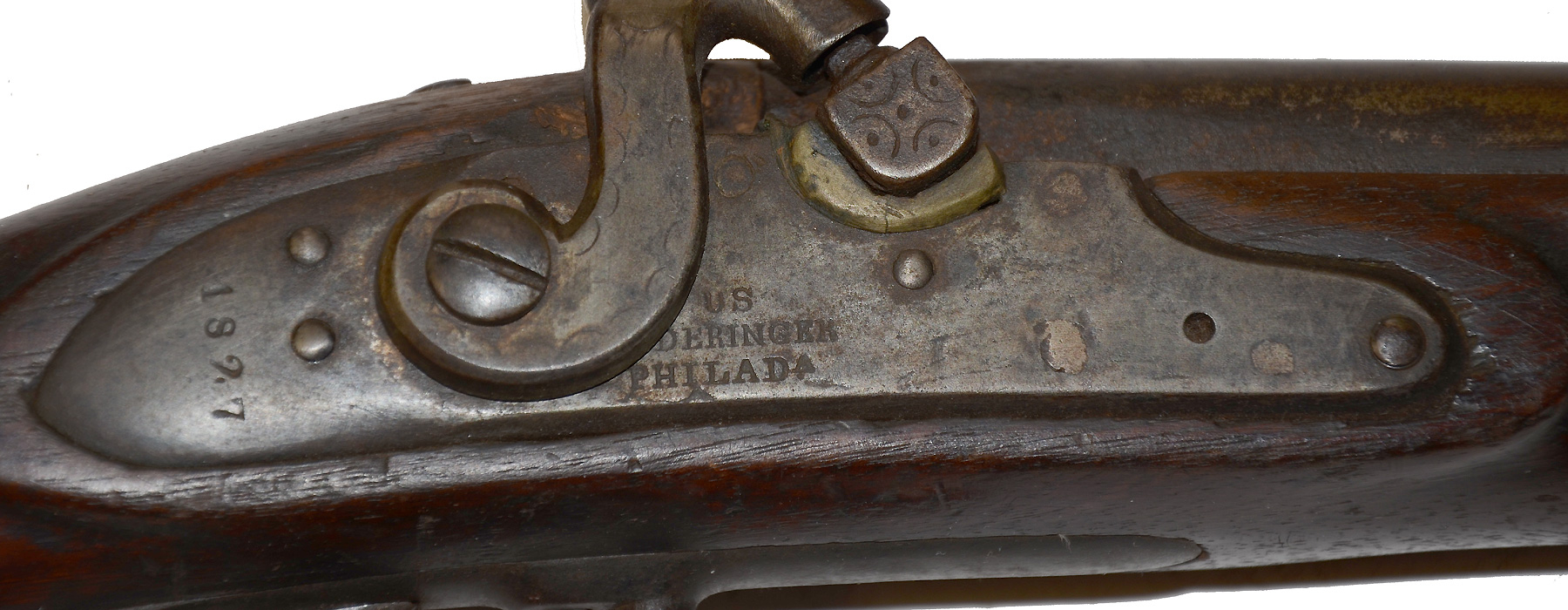
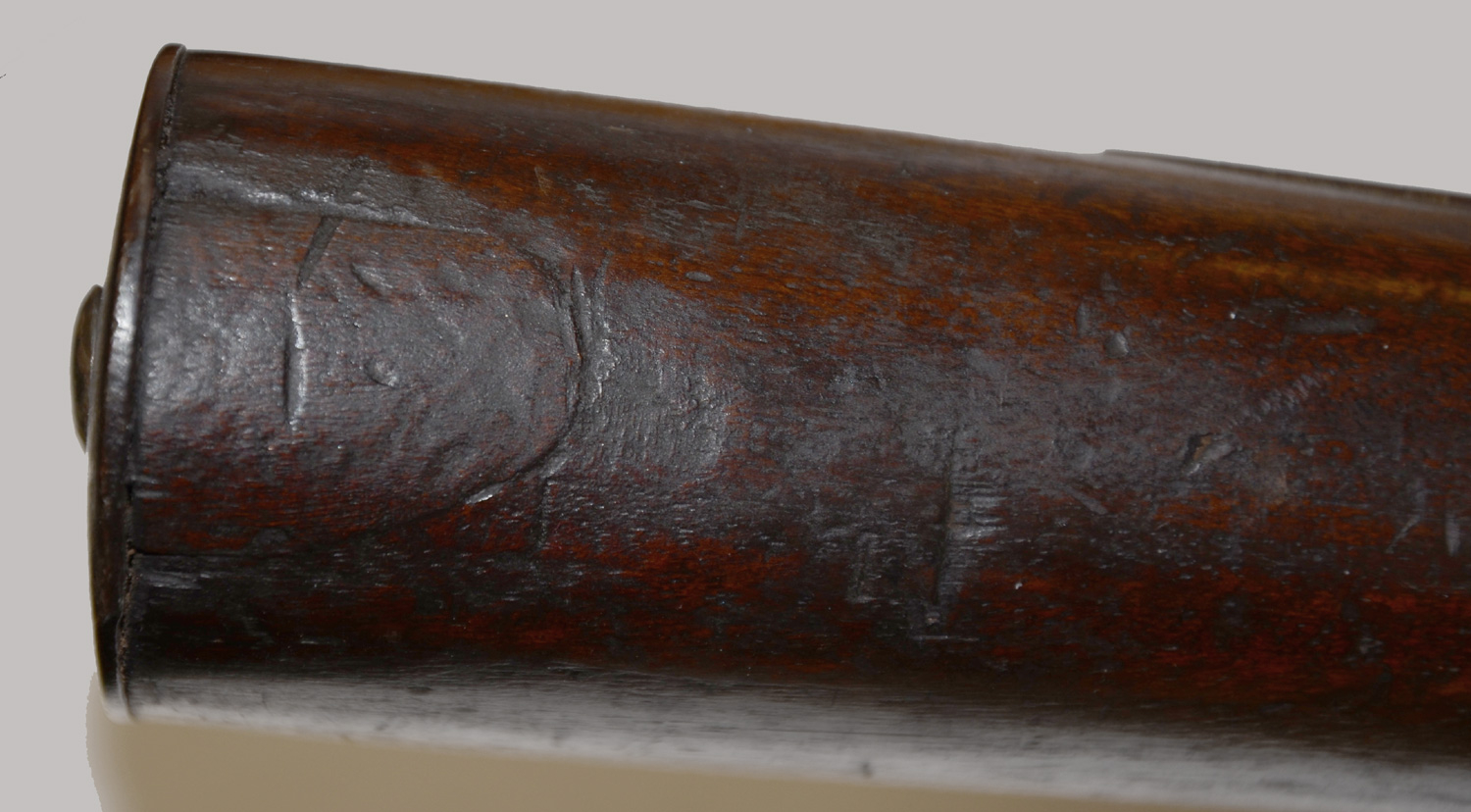

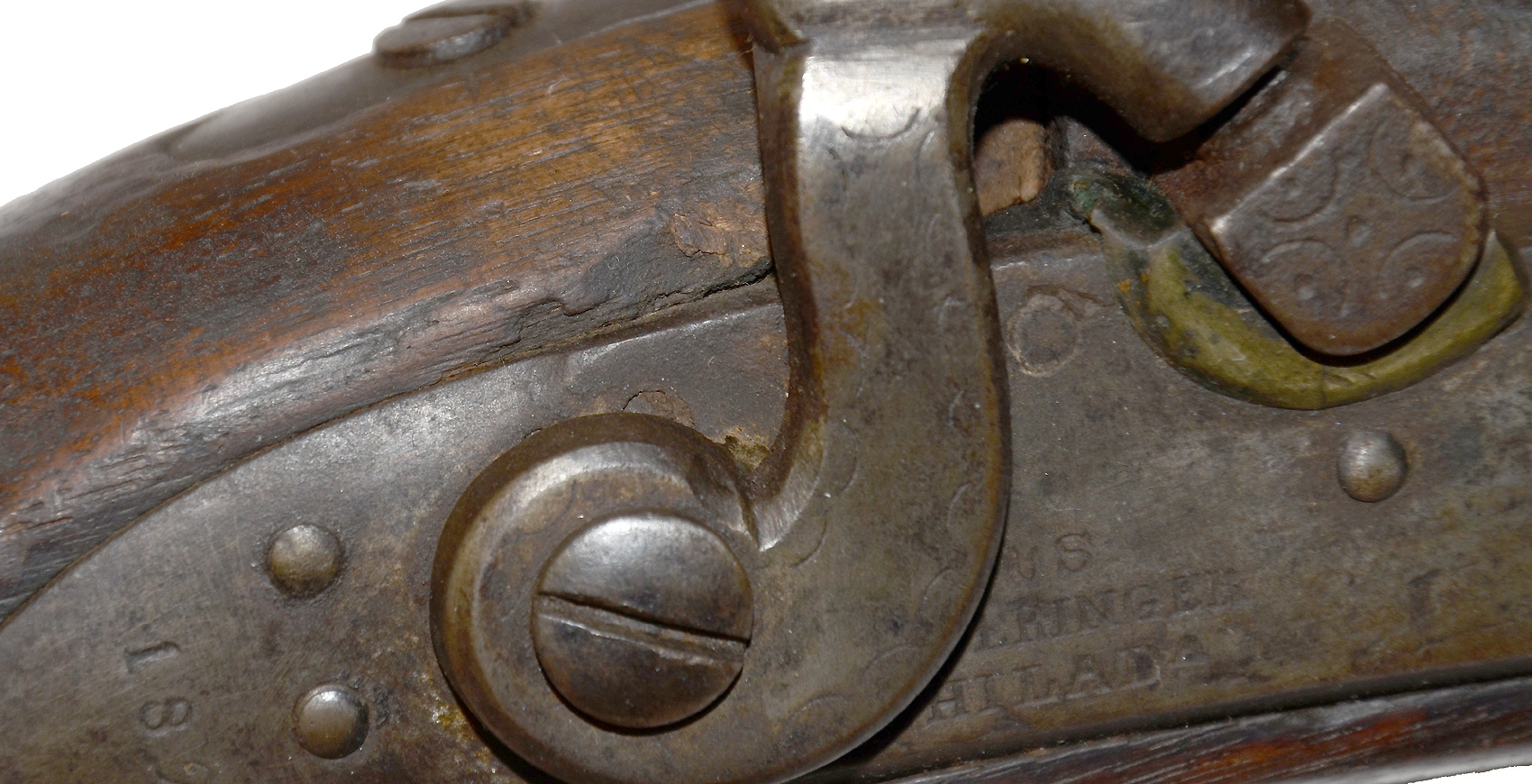
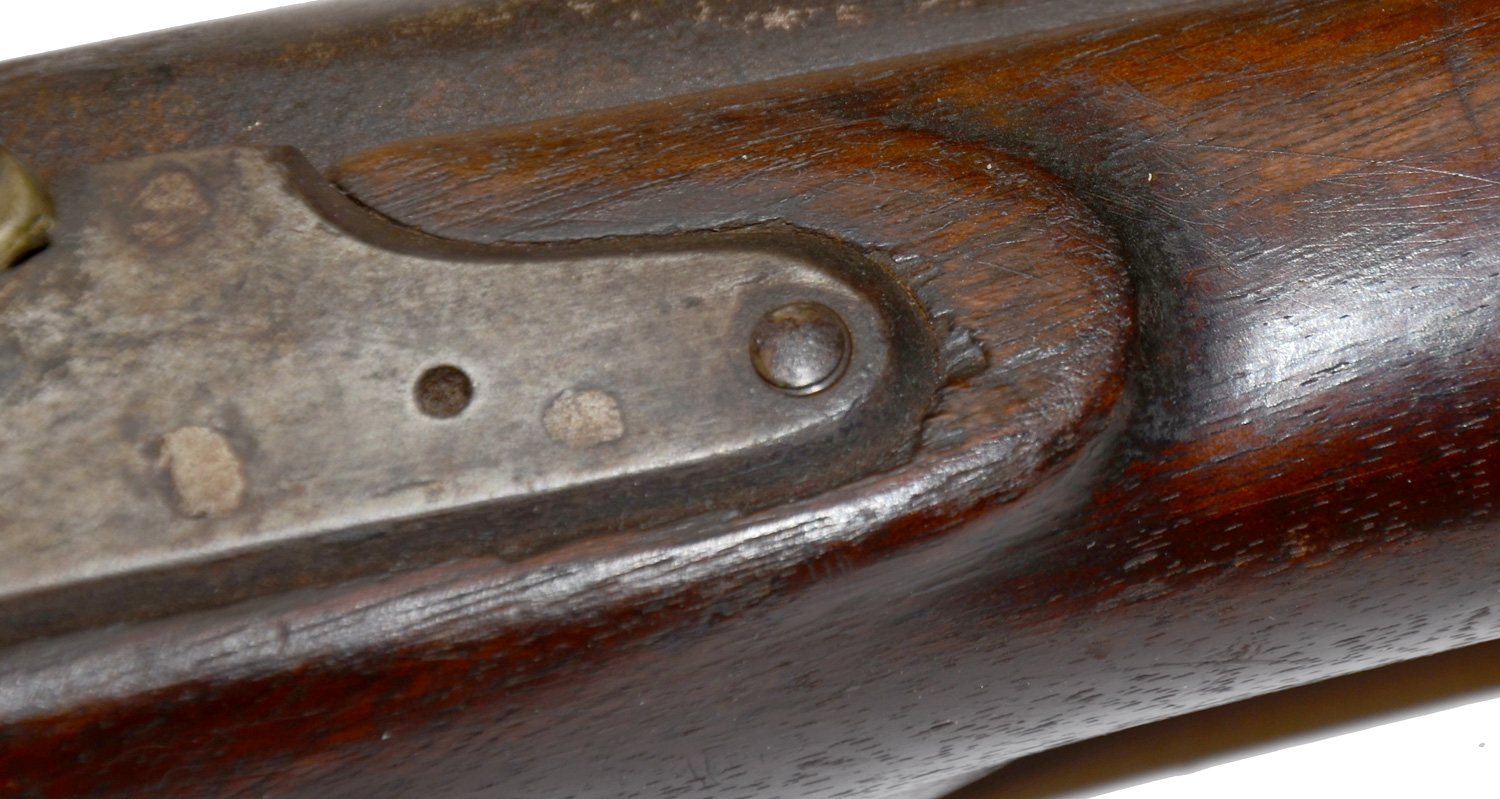

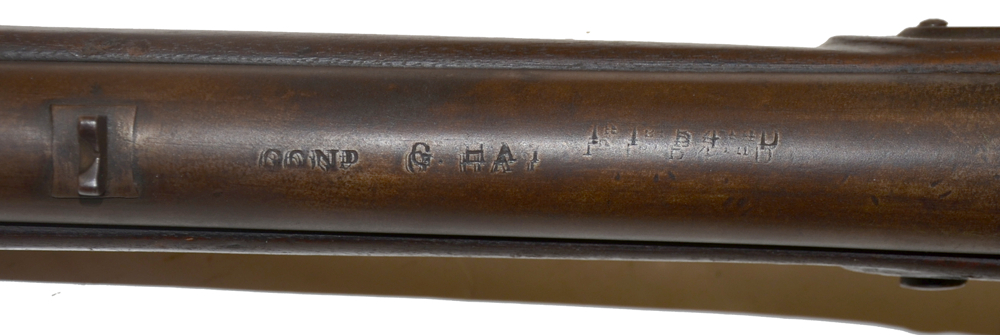
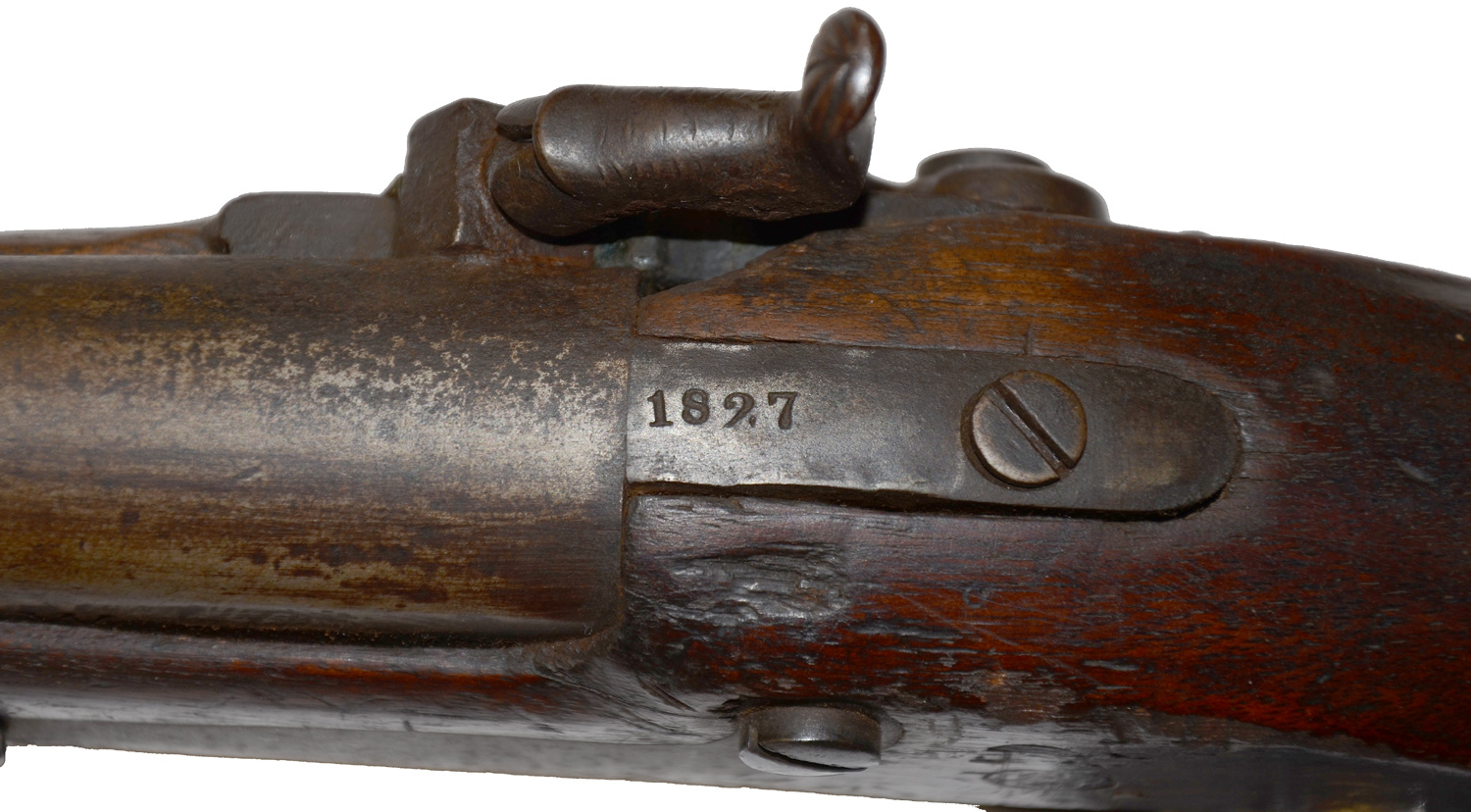
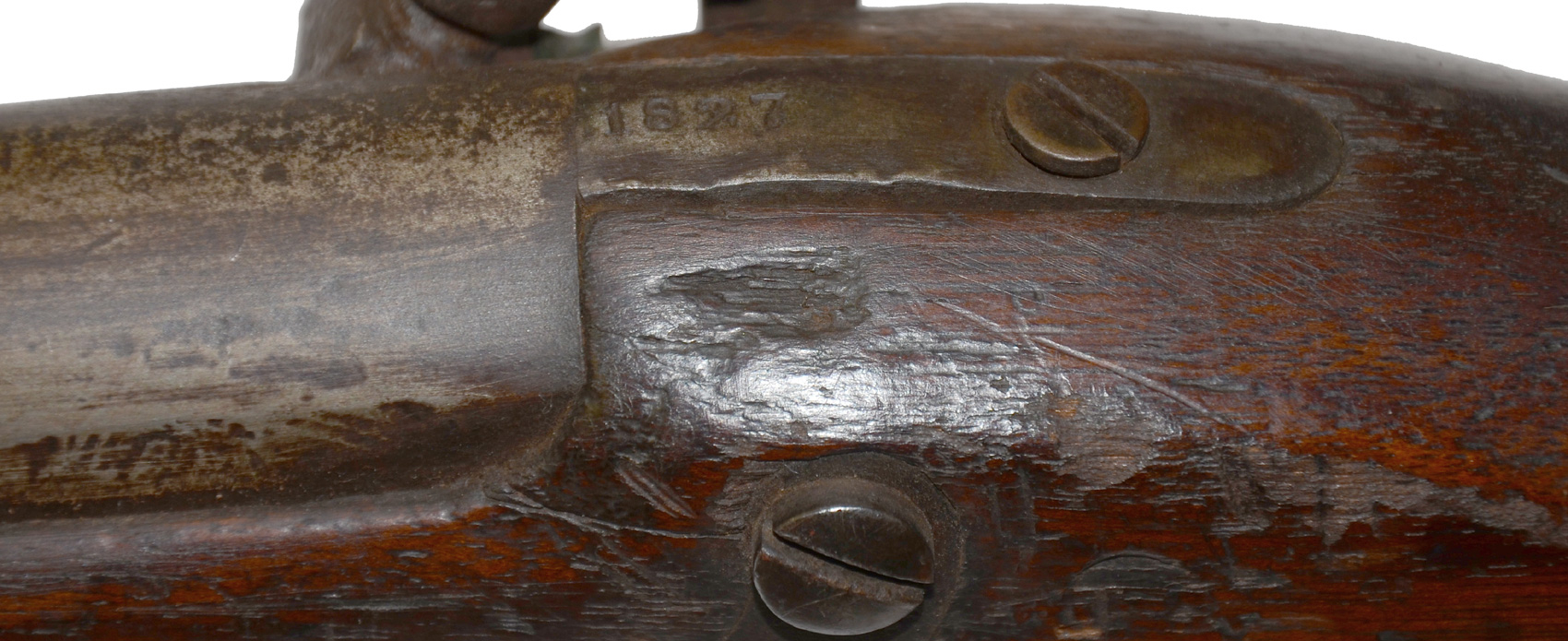
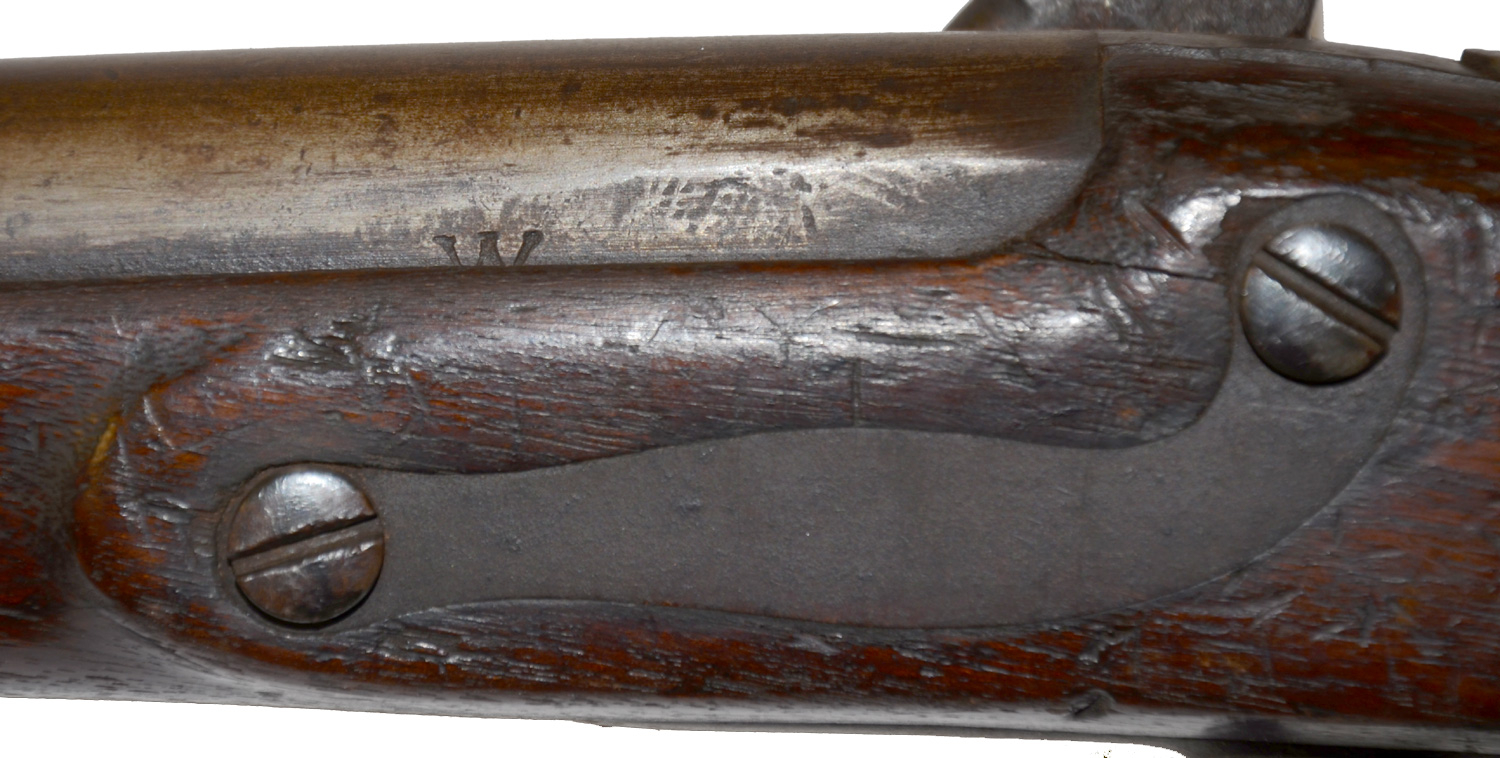

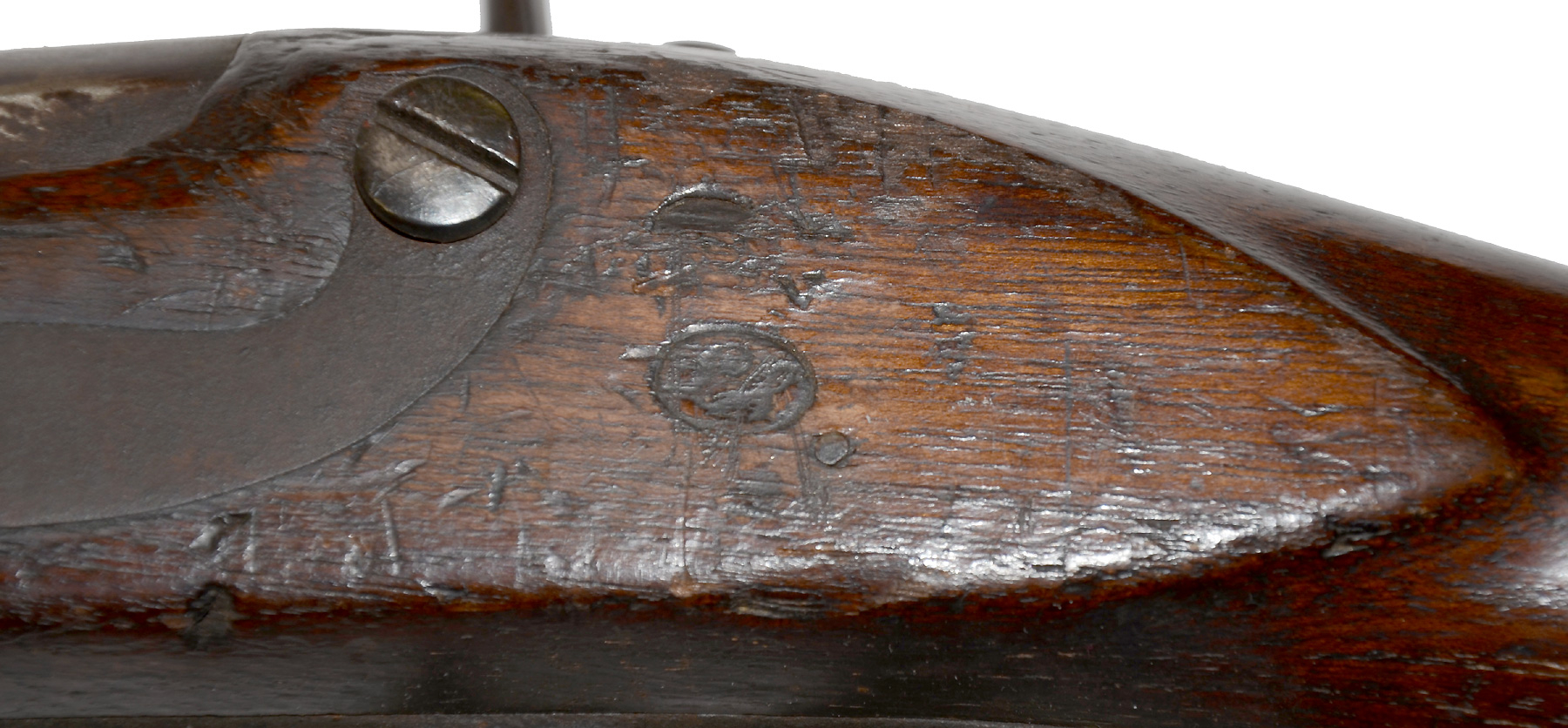
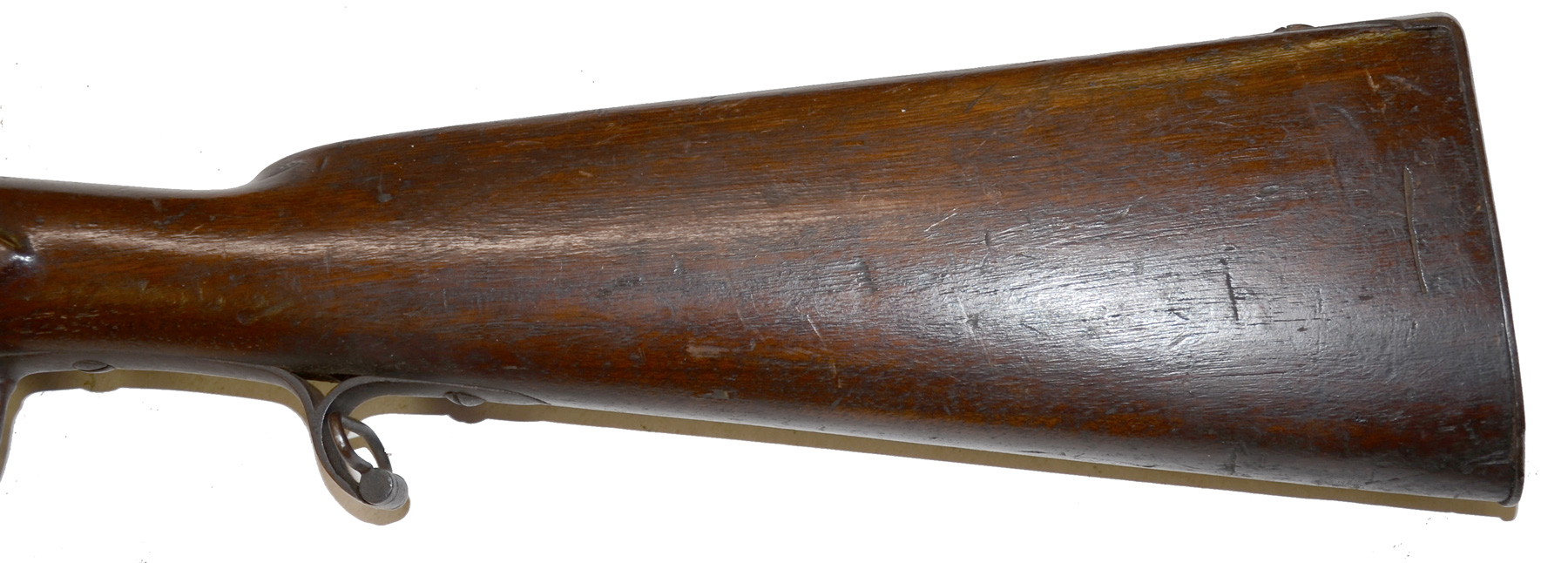

$2,295.00 SOLD
Originally $2,445.00
Quantity Available: None
Item Code: 218-530
This longarm is a U.S. M1817 Common Rifle produced by contractor Henry Deringer of Philadelphia, PA. Under contract with the government, Deringer converted some 13,000 such flintlocks to percussion rifles with the ‘drum’ or ‘French’ style system. This is one of them.
Weapon measures 51¼” in total length with mountings that are iron and that show even light brown patina. Round barrel is 36” long and is .58 cal. Bore is dirty with no traces of rifling and needs scrubbed. Barrel surface is an even light brown patina that matches the bands. Front sight is original and was also used as the bayonet lug. The original rear sight is also intact. Barrel tang is marked with “1827” date. Other markings found on the barrel are the early Pennsylvania militia-inspector stampings that read “COND G. HAY IR 1ST B 4TH ID”. This stamping indicates (Conditioned by George Hay, Brigade inspector, 1st Brigade, 4th Division).
Early in the 19th century, the Pennsylvania Militia Act of 1822 provided for an Inspector to review the musters for its state militia units. George Hay was Captain of the York Pennsylvania Rifle militia unit in 1842, as well as Brigade Inspector for the 1st Brigade, 5th Division. That year the militia act was repealed in PA. George Hay served the uniformed militia of Pennsylvania. He was the captain of the York Town Rifle Company, a local militia unit.
With the outbreak of the American Civil War, he enlisted in the Union Army on April 18, 1861, as captain of Company K of the short-term, three-months 2nd Pennsylvania Volunteer Regiment. He was subsequently colonel of the 87th Pennsylvania, a three-year regiment. In early 1863, he took command of the 1st Brigade, 2nd Division, 8th Army Corps.
Taking quite ill in May 1863, he was granted a surgeon's medical disability discharge and returned home before the Gettysburg Campaign. He was one of the five Members of the committee of Safety who met with Confederate General Gordon and surrendered York the day before General Gordon & General Jubal Early entered town on June 28 1863. 3 days later the confederate troops headed to Gettysburg.
Lockplate has a light patina and is stamped with a small “US” over “DERINGER / PHILADA” in front of the hammer and dated “1827” behind the hammer. Hammer is the typical civilian style with the flat side. The original nipple is in very good condition. Mechanics are strong and work properly.
The full length, black walnut stock is in very good attractive condition overall. Right side of butt has a large 4½” x 2” oval, iron patchbox. There is a deep clear visible cartouche on the flat. Left side has small crack running from the top lockplate screw forward to stock edge. Sideplate and tang screws are very good condition.
Buttplate tang has deep clear “US” stamping. Weapon retains its original brass head ramrod with threaded tip. All three iron barrel bands are present. Center band has the original sling swivel while the trigger guard mounts the second original swivel on the grip.
This type of rifle did see use in the Civil War and would be a unique addition to any military collection. [KN] [ph:L]
DISCLAIMER: All firearms are sold as collector's items only - we do not accept responsibility as to the shooting safety or reliability of any antique firearm. All firearms are described as accurately as possible, given the restraints of a catalog listing length. We want satisfied customers & often "under" describe the weapons. Any city or state regulations regarding owning antique firearms are the responsibility of the purchaser. All firearms are "mechanically perfect" unless noted, but again, are NOT warranted as safe to fire.
~~~~~~~~~~~~~~~~~~~~~~~~~~~~~~~~~~~
THIS ITEM, AS WITH ALL OTHER ITEMS AVAILABLE ON OUR WEB SITE,
MAY BE PURCHASED THROUGH OUR LAYAWAY PROGRAM.
FOR OUR POLICIES AND TERMS,
CLICK ON ‘CONTACT US’ AT THE TOP OF ANY PAGE ON THE SITE,
THEN ON ‘LAYAWAY POLICY’.
THANK YOU!
Inquire About PENNSYLVANIA MILITIA-INSPECTED, DERINGER MODEL 1817 RIFLE CONVERTED TO PERCUSSION
Most Popular
Historical Firearms Stolen From The National Civil War Museum In Harrisburg, Pa »
Theft From Gravesite Of Gen. John Reynolds »
Selection Of Unframed Prints By Don Troiani »
Fine Condition Brass Infantry Bugle Insignia »
featured item
IMPORT MODEL 1850 CIVIL WAR FIELD & STAFF OFFICER’S SWORD ID’D TO COL. RICHARD M. CORWINE, MEMBER OF GENERAL FREMONT’S STAFF
Original Civil War Model 1850 Field & Staff officer’s sword in nice condition complete with its metal scabbard. Sword is unmarked and is no doubt an import item. It is identified by a presentation inscription to R. M. Corwine, Aide-de-camp to… (870-157). Learn More »


